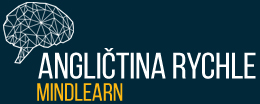Nepravidelné sloveso pay
platiť, uhradiť, vyplatiť
| Infinitive | payA2 |
| Past Simple | paid |
| Past Participle | paid |
put – put – put

Vety s nepravidelným slovesom pay
1. Forma: Sloveso pay – prítomný čas jednoduchý
Tom always pays his bills on time.
Tom vždy platí účty včas.
Some people pay a lot of money to get here.
Niektorí ľudia platia veľa penazí, aby sa sem dostali.
2. Forma: sloveso paid – minulý čas jednoduchý
I paid a lot of money for this camera and I don’t want you to damage it.
Za tento fotoaparát som zaplatil veľa peňazí a nechcem aby si mi ho pokazil.
3. Forma: sloveso paid – minulé príčastie
Have you paid the TV bill yet?
Už si zaplatil účet za televíziu?
4. Forma: sloveso paying – prítomný čas priebehový
Martin´s paying high price for his flat at the moment.
Martin momentálne platí vysokú sumu za byt.
Definícia nepravidelného slovesa pay
Anglicky
VERB
(used with object), paid, pay·ing.
- to settle (a debt, obligation, etc.), as by transferring money or goods, or by doing something:
- Please pay your bill.
Slovensky
Sloveso
(použité s predmetom), platiť.
- vyrovnať (dlh, záväzok, atď.), prevodom peňazí alebo tovaru, alebo vykonaním niečoho:
- Prosím, zaplaťte svoj účet.
Synonymá slovesa pay (vo význame „give money for goods, services“)
| compensate | extend | grant |
| handle | refund | repay |
Synonymá slovesa pay (vo význame „be advantageous“)
| benefit | repay | serve |
Synonymá slovesa pay (vo význame „make amends“)
| compensate | answer | atone |
Synonymá slovesa pay (vo význame „profit, yield“)
| bring in | pay off | return |
Synonymá slovesa pay (vo význame „get revenge“)
| pay back | repay | punish |
Antonymá slovesa pay (vo význame „give money for goods, services“)
| deny | hold | penalize |
Antonymá slovesa pay (vo význame „be advantageous“)
| take | earn | lose |
Antonymá slovesa pay (vo význame „make amends“)
| earn | lose |
Antonymá slovesa pay (vo význame „profit, yield“)
| earn | lose |
Antonymá slovesa pay (vo význame „get revenge“)
| refuse | earn | lose |
Časovanie nepravidelného slovesa pay
Indicative – Oznamovací spôsob
Present simple
Prítomný čas jednoduchý
I pay
you pay
he/she/it pays
we pay
they pay
you pay
Past simple
Minulý čas jednoduchý
I paid
you paid
he/she/it paid
we paid
they paid
you paid
Future simple
Budúci čas jednoduchý
I will pay
you will pay
he/she/it will pay
we will pay
they will pay
you will pay
Perfect – perfektívum
Present perfect
Predprítomný čas jednoduchý
I have paid
you have paid
he/she/it has paid
we have paid
they have paid
you have paid
Past perfect
Predminulý čas jednoduchý
I had paid
you had paid
he/she/it had paid
we had paid
they had paid
you had paid
Future perfect
Predbudúci čas jednoduchý
I will have paid
you will have paid
he/she/it will have paid
we will have paid
they will have paid
you will have paid
Continuous – priebehový čas
Present continuous
Prítomný čas priebehový
I am paying
you are paying
he/she/it is paying
we are paying
they are paying
you are paying
Past continuous
Minulý čas priebehový
I was paying
you were paying
he/she/it was paying
we were paying
they were paying
you were paying
Future continuous
Budúci čas priebehový
I will be paying
you will be paying
he/she/it will be paying
we will be paying
they will be paying
you will be paying
Perfect Continuous – perfektívny priebehový čas
Present perfect cont.
Predprítomný čas priebehový
I have been paying
you have been paying
he/she/it has been paying
we have been paying
they have been paying
you have been paying
Past perfect continuous
Predminulý čas priebehový
I had been paying
you had been paying
he/she/it had been paying
we had been paying
they had been paying
you had been paying
Future perfect cont.
Predbudúci čas priebehový
I will have been paying
you will have been paying
he/she/it will have been paying
we will have been paying
they will have been paying
you will have been paying
Conditional – Podmieňovací spôsob
Conditional present
I would pay
you would pay
he/she/it would pay
we would pay
they would pay
you would pay
Conditional perfect
I would have paid
you would have paid
he/she/it would have paid
we would have paid
they would have paid
you would have paid
Conditional present progressive
I would be paying
you would be paying
he/she/it would be paying
we would be paying
they would be paying
you would be paying
Conditional perfect progressive
I would have been paying
you would have been paying
he/she/it would have been paying
we would have been paying
they would have been paying
you would have been paying
Positive
Pozitívny
you pay
we Let’s pay
you pay
Negative
Negatívny
you don’t pay
we don’t pay
you don’t pay

